|
Books Should Be Free Loyal Books Free Public Domain Audiobooks & eBook Downloads |
|
|
Books Should Be Free Loyal Books Free Public Domain Audiobooks & eBook Downloads |
|
Romance Novels |
|---|
|
Book type:
Sort by:
View by:
|
By: Edith Wharton (1862-1937) | |
|---|---|
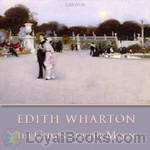 The Glimpses of the Moon
The Glimpses of the Moon
"The Glimpses of the Moon" (1922) is about Nick and Susy Lansing, both of whom live a decadent life in Europe by sponging off wealthy friends. They marry out of convenience and have an "open" relationship, but are unprepared for where their feelings will take them. | |
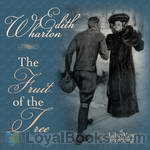 The Fruit of the Tree
The Fruit of the Tree
When published in 1907, this novel about the lives of a wealthy mill owner, her socially progressive husband and friends caused a stir due to its treatment of drug abuse, mercy killing, divorce and second marriages. | |
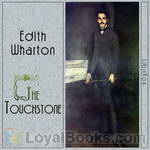 The Touchstone
The Touchstone
Stephen Glennard's career is falling apart and he desperately needs money so that he may marry his beautiful fiancee. He happens upon an advertisement in a London magazine promising the prospect of financial gain. Glennard was once pursued by Margaret Aubyn, a famous and recently deceased author, and he still has her passionate love letters to him. Glennard removes his name from the letters and sells them, making him a fortune and building a marriage based on the betrayal of another. | |
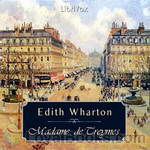 Madame de Treymes
Madame de Treymes
Edith Wharton's 1907 novella explores the milieu of Americans living abroad in Paris. New Yorker John Durham travels to Paris to woo an old flame, Fanny Frisbee, now the Marquis de Malrive. Fanny is separated from her husband and wants to marry John and return to America, but she doubts whether her Catholic husband will grant her a divorce. When John meets Fanny's sister-in-law, the enigmatic Madame de Treymes, he hopes she may be able to help them in their quest for happiness. (Introduction by Elizabeth Klett) | |
 Mother's Recompense
Mother's Recompense
Kate Cephane, now living in self-imposed exile in France, left her three-year-old daughter Anne behind when she fled her impossibly unhappy marriage for a brief affair. When Anne asks her to return because she is getting engaged, Kate risks the scorn and scandal of New York elite society to be reconciled. When she finds out the identity of her daughter's fiancé, Kate is caught in the dilemma of how to prevent the marriage without revealing her past. Either way she will risk losing her daughter once more. | |
By: Edmund Day (1866-1923) | |
|---|---|
 The Round-Up A romance of Arizona novelized from Edmund Day's melodrama
The Round-Up A romance of Arizona novelized from Edmund Day's melodrama
| |
By: Edmund John Eyre (1767-1816) | |
|---|---|
 Lady of the Lake
Lady of the Lake
At the request of Mr. Siddons, Manager and Patentee of the Theatre Royal, Edinburgh, the following Performance was composed. I am very sensible that Mr. Scott’s Poem of “The Lady of the Lake” afforded material for a much superior Drama than the one here presented to the public; but as Mr. Siddons, in all his correspondence with me on the subject, urged expedition, I was more attentive to the interest of a Friend than to the fame of an Author; and the whole piece was arranged, written, and copied in the short space of ten days... | |
By: Edmund Spenser (1552?-1599) | |
|---|---|
 Amoretti: A sonnet sequence
Amoretti: A sonnet sequence
The Amoretti (meaning little love poems) is a sequence of 89 sonnets written in the tradition of the Petrarchan sonnets, a popular form for poets of the Renaissance period. Spenser’s sequence has been largely neglected in modern times, while those of his contemporaries William Shakespeare and Sir Philip Sidney have been acclaimed. However, because of the artistic skill, along with the emotion and the humor exhibited, these poems deserve a broader hearing, even though they may be somewhat difficult for the present-day reader, partly through Spenser’s love for words and expressions that were already archaic in his time... | |
By: Edna Ferber (1865-1968) | |
|---|---|
 Buttered Side Down
Buttered Side Down
"And so," the story writers used to say, "they lived happily ever after." Um-m-m—maybe. After the glamour had worn off, and the glass slippers were worn out, did the Prince never find Cinderella's manner redolent of the kitchen hearth; and was it never necessary that he remind her to be more careful of her finger-nails and grammar? After Puss in Boots had won wealth and a wife for his young master did not that gentleman often fume with chagrin because the neighbors, perhaps, refused to call on the lady of the former poor miller's son? It is a great risk to take with one's book-children... | |
 Show Boat
Show Boat
Published in 1926, Show Boat tells of three generations of the Hawks-Ravenal family and the Cotton Blossom Floating Palace Theatre on the Mississippi and other rivers, from the Reconstruction Era of the 1880s, to the Gilded Age and Roaring Twenties. The story was made into a Broadway musical in 1927 and into films in 1929.NOTE: There are issues of race in the story, particularly anti-Black stereotypes and derogatory terms. It is policy to record texts as written. - Summary by TriciaG | |
By: Edward Irenaeus Prime-Stevenson (1858-1942) | |
|---|---|
 White Cockades: An Incident of the "Forty-Five"
White Cockades: An Incident of the "Forty-Five"
In the aftermath of the 1745 Jacobite uprising, the young Andrew Boyd meets a fugitive from the redcoats, a man whom Andrew soon grows to admire. Andrew and his father take the man in, but then the redcoats arrive to search the house... Besides being a historical adventure this reads, to a modern reader, as a sweet gay romance, though it's not explicit. Indeed the author was gay himself and anonymously recommended his own book as an example of homoerotic fiction in The Intersexes, his 700-page defense of homosexuality under another pen name. - Summary by Elin | |
By: Edward M. Forster (1879-1970) | |
|---|---|
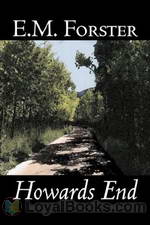 Howards End
Howards End
It's sad, but true to say that today Edward Morgan Forster's works are known more from their film and television adaptations rather than from their original novels. Yet, these adaptations have spurred many a fascinated viewer into going back to the library and finding the book that the film or miniseries was based on and this is ultimately the power of Forster's literary appeal. Howard's End was published in 1910 and it marked Forster's first taste of critical and commercial success. He had published three other novels earlier, Where Angels Fear To Tread (1905), The Longest Journey (1907) and A Room With a View (1908) but none of them had been received with so much acclaim... | |
By: Edward M. Hull (1880-1947) | |
|---|---|
 Sheik
Sheik
The novel on which the famous silent movie starring Rudolf Valentino was based. The plot is set in motion as Lady Conway disapproves of Diana's planning a desert trip with just her Arab guides to accompany her. Diana gets kidnapped by the Sheik, Ahmed Ben Hassan. Finally allowed to ride in the desert alone, she plans an escape. However, the Sheik recaptures her. And so the story unfolds. | |
By: Edward P. Roe (1838-1888) | |
|---|---|
 He Fell in Love with His Wife
He Fell in Love with His Wife
James desperately needs someone to help him keep his farm going, but has failure after colossal failure finding a good housekeeper. Alida marries a man only to find out he's already married. She's so undone when she finds out that she just wants to go somewhere where no one will judge her for her misfortune, where she can work and keep herself fed and clothed. James and Alida meet and arrange for a strictly business marriage, leaving loving and honoring out of the vows. The title of the book tells the rest of the story, but the way it gets there is worth the journey. (Introduction by TriciaG) | |
By: Edward Phillips Oppenheim (1866-1946) | |
|---|---|
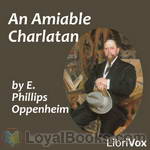 An Amiable Charlatan
An Amiable Charlatan
An Englishman is enjoying his dinner at Stephano's, at which he is a regular diner. A man enters quickly, sits at his table, starts eating his food, and hands him a packet underneath the table! So begins Paul Walmsley's acquaintance - and adventures - with American adventurer Joseph H. Parker and his lovely daughter, Eve. (Intro by TriciaG)Note that there is an alternate reading of section 8. Both are excellent renditions, so enjoy either or both of them. | |
 Anna the Adventuress
Anna the Adventuress
| |
 Yellow House
Yellow House
Vicar and his two daughters move to a small, quiet country village and soon learn that their neighbor in the yellow house holds secrets that will change everything they thought to be real in their lives. | |
By: Edward Streeter (1891-1976) | |
|---|---|
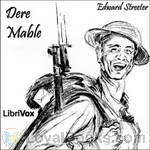 Dere Mable
Dere Mable
Bill is in training camp, preparing to go off to World War I. This book is a collection of love letters written to his sweetheart, Mable. The letters are humorous, mis-spelled, and have many stories of life in an army camp – all from Bill’s unique perspective. | |
By: Eleanor H. Porter (1868-1920) | |
|---|---|
 The Road to Understanding
The Road to Understanding
"If Burke Denby had not been given all the frosted cakes and toy shotguns he wanted at the age of ten, it might not have been so difficult to convince him at the age of twenty that he did not want to marry Helen Barnet.""Of course the inevitable happened. However near two roads may be at the start, if they diverge ever so slightly and keep straight ahead, there is bound to be in time all the world between them. In the case of Burke and Helen, their roads never started together at all: they merely crossed; and at the crossing came the wedding... | |
 Miss Billy Married
Miss Billy Married
At the opening to this second sequel to Miss Billy (Miss Billy, Miss Billy's Decision, Miss Billy Married), we find Bertram and Billy finally at the altar. Will wedded bliss ensue and are the patter of little feet on the horizon? Or is misunderstanding and heartache in the cards again? Find out in Miss Billy Married! | |
 Mary Marie
Mary Marie
A charming 'coming of age' story about a young girl, Mary Marie, whose young life is thrown into turmoil as her parents divorce. As she leads two lives, she comes to realize that her parents still love one another, and engineers a reunion. In the end, we discover the long-lasting effect of this turmoil on the adult Mary Marie, and her own marriage." | |
By: Eleanor Hallowell Abbott (1872-1958) | |
|---|---|
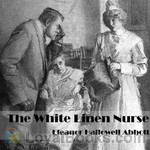 The White Linen Nurse
The White Linen Nurse
Throughout three years of school, Rae Malgregor had been perfectly pliant, perfectly compliant to all the demands placed on her. But now, on the eve of graduation, she couldn’t go on with the mask of artificiality and the air of perfection. She had been chasing this nursing job three whole years, but there was just no wag to it! The Superintendent was stunned. Her best student! The Senior Surgeon was all grey granite business and livid that his time was being taken up with a hysterical nurse! And yet, though he wouldn’t have admitted it to anyone, especially himself, his interest was piqued. | |
 Little Eve Edgarton
Little Eve Edgarton
Eve Edgarton is not who she seems she is. A short encounter with Mr. Barton show that first impressions are not always right or indicative of one’s seemingly obvious preference or one’s proclivity. | |
By: Elinor Glyn (1864-1943) | |
|---|---|
 Man and Maid
Man and Maid
| |
 Red Hair
Red Hair
| |
 High Noon A New Sequel to 'Three Weeks'
High Noon A New Sequel to 'Three Weeks'
| |
 Your Affectionate Godmother
Your Affectionate Godmother
This is a series of seven letters by the eminent author of scandalous romances, Elinor Glyn, written to her godchild Caroline in the years 1912-1914. The Letters give Caroline advice on how best to find her way in life, particularly to matrimony. They contain such gems of wisdom as "It is better to marry the life you like, because after a while the man does not matter", that beauty is of "colossal importance", and that a woman will do well never to ask her husband any questions. The letters are very entertaining to read, though most modern godchildren may not wish to follow the advice too closely. - Summary by Carolin | |
By: Elisabeth Sanxay Holding (1889-1955) | |
|---|---|
 Angelica
Angelica
Angelica's dearest wish is to better herself. Not to be a factory worker, struggling every day to survive, but to be a lady. Refined, respected, and rich. She jumps at the chance to be a companion to a lady, hoping that she can learn how the other class lives, and how to be like them. Young and naive, her dream seems within her grasp - but can she hold on to it? | |
By: Eliza Fenwick (1766-1840) | |
|---|---|
 Secresy, or, the Ruin on the Rock
Secresy, or, the Ruin on the Rock
This is the story of Caroline and Sibella, two female friends. Strong and smart women who try to make it in a man's world while keeping their values and loyalties intact. The only way to do that is to hide a few secrets. Yet secrets cannot remain hidden for ever, and everything has a price. This is both a social novel and a gothic novel. A true page turner with all the elements of a good 18th century novel: a woman locked in an estate, a hidden pregnancy, some politics of marriage, villains, sentimentality and thought provoking philosophy. Summary by Stav Nisser. | |
By: Eliza Haywood (1693-1756) | |
|---|---|
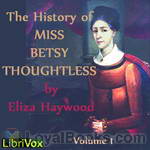 The History of Miss Betsy Thoughtless, Volume 1
The History of Miss Betsy Thoughtless, Volume 1
The flirtations of a rich young maiden, Miss Betsy Thoughtless with several suitors, as she alienates the right man by refusing to take the issue of marriage seriously. Because of this her guardian commits her to marriage to the wrong man, a situation over which she has little control. As the heroine describes her fate, this text exposes the institution of marriage, the powerlessness of women and the double standards held during that time.(Introduction by Joyce Martin) | |
 History of Miss Betsy Thoughtless, Vol. 2
History of Miss Betsy Thoughtless, Vol. 2
This has been said to be the first female development novel in English. Betsy leaves her emotionally and financially abusive husband Munden and experiences independence before she decides to marry again. The novel has marital advice told via quips from Lady Trusty. | |
 History of Miss Betsy Thoughtless, Vol. 4
History of Miss Betsy Thoughtless, Vol. 4
Betsy Thoughtless is about an intelligent and strong-willed woman who marries under pressure from the society in which she lives. Betsy learns that sometimes giving way to the role of women within a marriage can at times be fulfilling. This is the fourth and final volume in this series. Does she get her man you will have to listen and find out. | |
 History of Miss Betsy Thoughtless, Vol. 3
History of Miss Betsy Thoughtless, Vol. 3
Betsy Thoughtless is about marriage, rather than dealing with courtship and thus differs from the type of domestic writing that would develop in the 19th century such as Charlotte Brontë’s Jane Eyre. Rather than attracting a partner well, Betsy Thoughtless focuses on marrying well and Betsy learns that giving way to the role of women in marriage can sometimes be fulfilling. - Summary by Michele Eaton | |
By: Elizabeth Gaskell | |
|---|---|
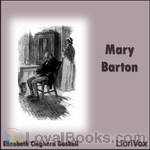 Mary Barton
Mary Barton
Mary Barton is the first novel by English author Elizabeth Gaskell, published in 1848. The story is set in the English city of Manchester during the 1830s and 1840s and deals heavily with the difficulties faced by the Victorian lower class. The novel begins in Manchester, where we are introduced to the Bartons and the Wilsons, two working class families. John Barton reveals himself to be a great questioner of the distribution of wealth and the relation between the rich and the poor. He also relates how his sister-in-law Esther has disappeared after she ran away from home... | |
 Sylvia's Lovers
Sylvia's Lovers
The novel begins in the 1790s in the coastal town of Monkshaven. Sylvia Robson lives with her parents on a farm, and is loved by her rather dull Quaker cousin Philip. She, however, meets and falls in love with Charlie Kinraid, a sailor on a whaling vessel, and they become engaged, although few people know of the engagement. But Charlie gets press-ganged and have to leave without a word. | |
By: Elizabeth Inchbald (1753-1821) | |
|---|---|
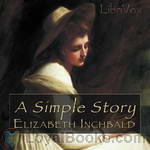 A Simple Story
A Simple Story
The story could really have been simple: Miss Milner, who is admired for her beauty and charm, could have been a socialite, marry a respectable and good looking man and be happy in the standards of her time. But if it was so, why would there be a book? Miss Milner, beautiful and charming as she is, announces her wish to marry her guardian, a catholic priest. But women in the 18th century do not declare their wishes or speak about their passions, and- after all- he is a catholic priest… And if he finds a way to marry her, is this her road to happiness? | |
By: Elizabeth von Arnim (1866-1941) | |
|---|---|
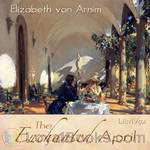 The Enchanted April
The Enchanted April
It’s a dreary February in post-World War I London when Mrs. Wilkins spots an advertisement in The Times for a small Italian castle for rent in April. She sees another member of her women’s club, Mrs. Arbuthnot, reading the same advertisement and manages to convince her that the two of them should rent it. Both are miserable and lonely in their marriages. They can’t afford the cost of the villa, San Salvatore, on their own and must advertise for two others, eventually recruiting an elderly widow named Mrs... | |
By: Ellen Anderson Gholson Glasgow (1873-1945) | |
|---|---|
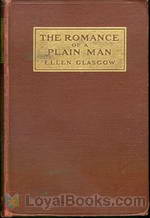 The Romance of a Plain Man
The Romance of a Plain Man
| |
By: Ellen Thorneycroft Fowler (1860-1929) | |
|---|---|
 The Farringdons
The Farringdons
| |
 Concerning Isabel Carnaby
Concerning Isabel Carnaby
Isabel Carnaby returns from India. She starts looking for a place in upper class British society. At the begining, people are sceptical of her because she is an orphan. But she will surprise everybody. - Summary by Stav Nisser. | |
 Fuel of Fire
Fuel of Fire
"Then was there war in the house of Baxendale. Guy had made up his mind to wed the fair daughter of the forester; while Sir Stephen and Dame Alice his wife had made up their minds — with equal firmness — that no son of their noble name should mate with a daughter of the people". A rumor started that the girl was a witch and so she was burned. However before she was burned she cursed the family who condemned her: "First by the King, and then by the State, And thirdly by that which is thrice as great As these, and a thousandfold stronger and higher Shall Baxendale Hall be made fuel of fire"... | |
By: Emanuel Swedenborg (1688-1772) | |
|---|---|
 Angelic Wisdom Concerning the Divine Love and the Divine Wisdom
Angelic Wisdom Concerning the Divine Love and the Divine Wisdom
| |
By: Emil Lucka (1877-1941) | |
|---|---|
 The Evolution of Love
The Evolution of Love
| |
By: Emily Ponsonby (1817-1877) | |
|---|---|
 Violet Osborne - Trilogy
Violet Osborne - Trilogy
"This book is in turns funny and sad. Violet Osborne is a very beloved child with no financial problems. She is both beautiful and good, and of course she must be happy. Yet, as we learn, she is a manipulative and overbearing woman who would do anything to get her way. This book tells us about her life as a girl, and takes us through her marriage and motherhood. It is a pleasant read, as the book is so witty and charming and the descriptions are very realistic". Summary by Stav Nisser. | |
By: Emma Goldman (1869-1940) | |
|---|---|
 Marriage and Love
Marriage and Love
| |
By: Emma Wolf (1865-1932) | |
|---|---|
 Other Things Being Equal
Other Things Being Equal
Ruth Levice, the daughter of a rich San Francisco Jewish merchant, meats Dr. Herbert Kemp, and they slowly fall in love. However, she is Jewish and he is not. Can love overcome such an obstacle? And what is more important, duty or love? | |
By: Esther Chamberlain | |
|---|---|
 The Coast of Chance
The Coast of Chance
| |
By: Ethel Hueston (1887-) | |
|---|---|
 Prudence of the Parsonage
Prudence of the Parsonage
| |
 Sunny Slopes
Sunny Slopes
| |
By: Ethel M. Dell (1881-1939) | |
|---|---|
 Charles Rex
Charles Rex
Excerpt: "Saltash was thoroughly cosmopolitan in his tastes; he liked amusement but he abhorred boredom. He was never really wicked unless he was bored. And then- que voulez vous? He did not guide the star of destiny." On his last night in Valrosa, Saltash returns to his luxurious yacht to find a stowaway, a young woman disguised as a boy. She pleads to be kept by him in order to escape from her abuser. Although ill used by life she is still very pure and Saltash falls head over heels in love with her... | |
 Hundredth Chance
Hundredth Chance
In this prequel to "Charles Rex'' by Ethel M. Dell you will meet the aristocratic blackguard Lord Saltash for whom our distressed heroine Maude Brian still holds deep feelings. Dedicated to the care of her younger crippled brother whom she adores, Maude eventually agrees to a marriage of convenience in order to escape from a home which has become unbearable after her mother marries a brutish hotel owner. Jake, an honest, strong and silent type, agrees to the marriage because he is secretly in love with her but refrains from showing it which leads to many regrettable misunderstandings... | |
By: Ethel Mary Brodie (1878-1931) | |
|---|---|
 Rose-colored World, and Other Fantasies
Rose-colored World, and Other Fantasies
Love stories make perfect short stories. This collection contains 16 different short stories on the different ways a love affair can play out. - Summary by Carolin | |
By: Eugene Walter (1874-1941) | |
|---|---|
 The Easiest Way A Story of Metropolitan Life
The Easiest Way A Story of Metropolitan Life
| |
By: Evelyn Everett-Green (1856-1932) | |
|---|---|
 Monica - Complete
Monica - Complete
Monica was happy at Trevlyn, with her father and step-brother. But what would happen to them when the estate passed to a distant cousin, entailed as it was to the male line? Could she bear to see her invalid brother torn from his home? Should she marry this distant cousin, and thus ensure her and her brother the right to remain at Trevyln? Could she love him? And what about his dislike of her old childhood friend? Was there more to the situation than she knew? | |
By: F. Hamilton Jackson (1848-1923) | |
|---|---|
 The Shores of the Adriatic The Austrian Side, The Küstenlande, Istria, and Dalmatia
The Shores of the Adriatic The Austrian Side, The Küstenlande, Istria, and Dalmatia
| |
By: F. Marion Crawford (1854-1909) | |
|---|---|
 Adam Johnstone's Son
Adam Johnstone's Son
| |
 The White Sister
The White Sister
| |
By: F. Scott Fitzgerald (1896-1940) | |
|---|---|
 This Side of Paradise
This Side of Paradise
A romantic and witty novel that has weathered time to remain one of America’s classic pieces. In the shadows of the great Gatsby is another brilliant novel by F. Scott Fitzgerald. This book is evidence to Fitzgerald’s literal genius because it was written by the author in his twenties to mirror his experiences at the time. It paints a picture of what it was like to be a young man or woman in the 20th century and in the wake of the First World War. The book is set on a foundation of socialist principles... | |
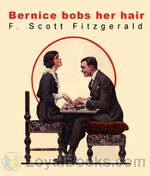 Bernice Bobs Her Hair
Bernice Bobs Her Hair
Pretty but socially clueless Bernice lets her know-it-all cousin push her around, but eventually, something's gotta give! (Introduction by BellonaTimes) | |
 Great Gatsby
Great Gatsby
Set in 1925, this is a novel of the Jazz Age; of ambition, of the careless rich, of wild parties and flappers and bootleg booze; and the efforts of a dreamer to reunite with his lost love. - Summary by Kara | |